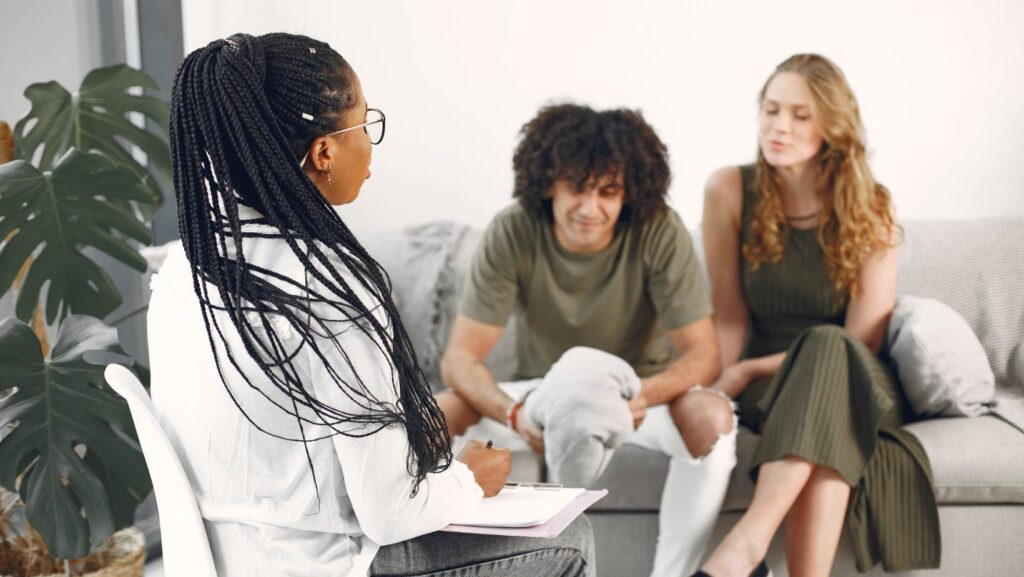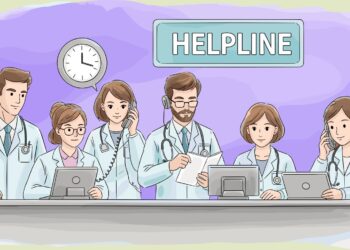You probably notice that when you are carrying something by yourself, it feels heavier than when carrying it with support. It is most difficult when you are talking about your heart, your head, or that invisible space between you and a partner.
In a relationship, you may feel like you are being misunderstood… or you are simply feeling tired and anxious and not like yourself. For sure, you have discussed it, and you are making a concerted effort to support one another, yet it just feels off.
It is okay to say, “I am struggling with this.” And it is more than okay to want a little help while you are trying to sort your own thoughts out and your connection to someone else.
And the best part?
You do not have to figure it out first. You may just be open to the support, and if you then choose, you can also find a therapist who gets it and walks alongside you, instead of ahead of you.
What Is Relationship And Mental Health Therapy?
Counseling for relationships and mental health is not about being “broken” or about having to be “fixed.” Counseling is an opportunity to take stock and give yourself a safe space to unravel what has been accumulating—emotionally, mentally, and/or in relating to someone close to you.
Sometimes, it has to do with how you come to the relationship, and sometimes, it has to do with the stories that you tell yourself when nobody is looking.
A therapist can listen non-judgmentally, help you organize your thoughts and feelings, and offer gentle traces of the patterns you may not even be aware exist. Individuals or couples, or one with the other, is a form of real, solid mental health support.
7 Tips To Find A Therapist For Your Relationship And Mental Health
It may seem difficult to find someone who supports you in your relationship and emotional health. You may be vulnerable and have questions such as, “Can they understand? Will something happen?”
However, the right therapist can actually make a big difference. They will sit with you through it, go through you, and help you understand pieces, but they will not correct everything. If you are unsure, these points can help you start.
1. Be Aware Of What You Want
Think for a moment before starting the search: Do you try to solve tension, communication problems, anxiety, or previous injury? Although it seems disorganized, it can help you find someone specializing in that area by being clear on your problems.
Consider participating in sessions alone with a partner, or perhaps with a combination of both. This self-assessment helps you map out the course; it is not innocent. It is easy to find the right type of support when you know why you need therapy.
2. Understand The Difference Between Individual And Joint Therapy
You can assume that couples therapy is just too big a problem – but it is not! Some companions will only strengthen communication or understand each other better. On the other hand, personal therapy helps you detect personal ideas, stresses, or previous wounds that can affect your relationship.

Some people also do both. Knowing the difference helps you create an informed option instead of guessing your own way. It is an important part of understanding how to find the right therapist for your unique position.
3. Look For Relevant Credentials And Experience
Not all therapists are trained the same way. For relationship-centered work, Emotionally Focused Therapy (EFT), the Gottman method, or someone with a licensed Marriage and Family Therapist (LMFT) can be particularly useful. Check their background—most therapists show it on their websites.
Experience with your specific concern – whether there are trauma, LGBTQ+ conditions, or cultural sensitivity – can also make a big difference. You deserve someone who actually achieves the nuances of your world, not someone who guesses through it. It is one of the most grounded methods to find a decent therapist.
4. Believe How You Feel During The First Conversation
You do not need to click immediately – but you should feel safe, seen, and heard. The first session (or counseling call) is a chance to notice how the therapist talks to you, if they interrupt, if they feel warm, or if something feels … closed.
The gut’s answer means something! Therapy is vulnerable work; it is necessary to feel emotionally safe with your therapist. If that doesn’t work right, try someone else. This does not mean that you fail – it means you listen to yourself.
5. Ask Questions Without Apologizing
It is fine to assess the suitability of a therapist. It is smart to do so.
What is their approach to conflicts within the partnership?
What do they do if only one partner shows up for the sessions?
The therapist’s responses to the questions you ask can be very telling of their approach and whether it is right for you. Do not fret over the phrases “needy” and “too curious.” You are fighting for your emotional and mental wellbeing, which is very courageous of you.
6. Be Open To Virtual Options
No, face-to-face meetings are no longer the sole choice. When location or commute is a barrier, you can find a therapist online who provides a great deal of comfort, privacy, and flexibility. Many believe that the effects of online mental health counseling are equivalent to those of traditional in-person counseling.
Virtual therapy can actually be a lifesaver when it comes to busy schedules or when you and your partner live apart. Developing a construct that works for your actual life—rather than this one that is meant to work—is the true consideration.
7. Give Yourself Permission To Change Therapists
If the first option is not successful, it is also okay. Finding a suitable fit can sometimes require too much effort, as this process is quite personal. It’s like dating: Sometimes weird, but meaningful when you discover someone who really notices.
There is no need to explain why you can say, “It doesn’t work,” and try someone else. If you’re wondering how to find a great therapist who feels right, know this: the right match isn’t just about their credentials; it’s about how you feel in their presence.
How Do You Know If A Therapist Is The Right Fit?
It might take some time to realize that the therapist you are working with is “the One”- sometimes you just know. The right therapist does not push you – they won’t fix you – they will not make you second-guess your feelings.
They will allow you to have space to breathe a little easier – even when the theme is hard.
It is less about saying the “right” thing, and more about listening, mirroring, and helping you unveil what is below the surface. If you leave without being seen-not judged-then you are doing pretty well.
Here are a few green flags:
- You feel safe, not made smaller
- They remember some details not with a clinical sense
- You don’t feel like you have to “perform” or be ok
- They gently challenge you, not aggressively
- You actually look forward to talking
You don’t have to feel great after every session, but you would want to feel supported. Just getting along with a therapist won’t always mean that you’ll feel comfortable; sometimes it means that you feel held through the discomfort.
And what if it’s not working for me?
All good, too! You have every right to check out until something clicks – for your peace, your growth, and your relationships.
Can One Therapist Help Both You And Your Partner?
Many couples use one therapist together—and yes, it can be profoundly healing. The therapist isn’t on either partner’s side, but instead curates the space for both of your lived experiences.
It’s about helping each person feel heard, seen, and safe enough to speak their truth. If both partners are bringing trust, it is possible for one therapist to facilitate some of the stickiest stuff—whether that is miscommunication or lack of physical intimacy.
Of course, one therapist isn’t good for everyone; if each partner brought in really deep individual trauma or wide emotional gaps, separate therapists might be the way to go. But for many couples, just sharing the same space brings clarity and connection.
If you’re unsure where to start, there are many therapists online who are primarily relationship-focused and do at least an initial consultation to talk it through.
Start Your Journey Today
When you are looking for a therapist, it is not necessary to be everything or nothing – it is exactly where you are, feel kind, safe, and real.
Maybe you’re working on a calm heart pain, or maybe you’re just trying to join your partner again. You are worth getting support to support both your relationship and mental health.
Be careful of yourself, believe what looks good, and know that you are not alone in this process. It’s about finding a therapist who can capture the whole vision – not just problems, but also opportunities.














Discussion about this post